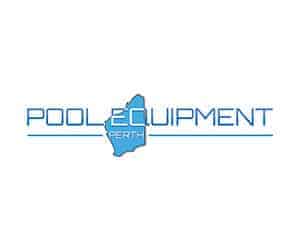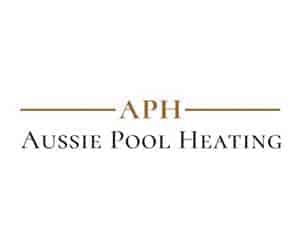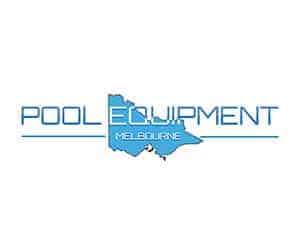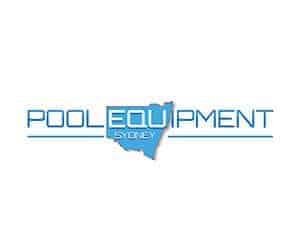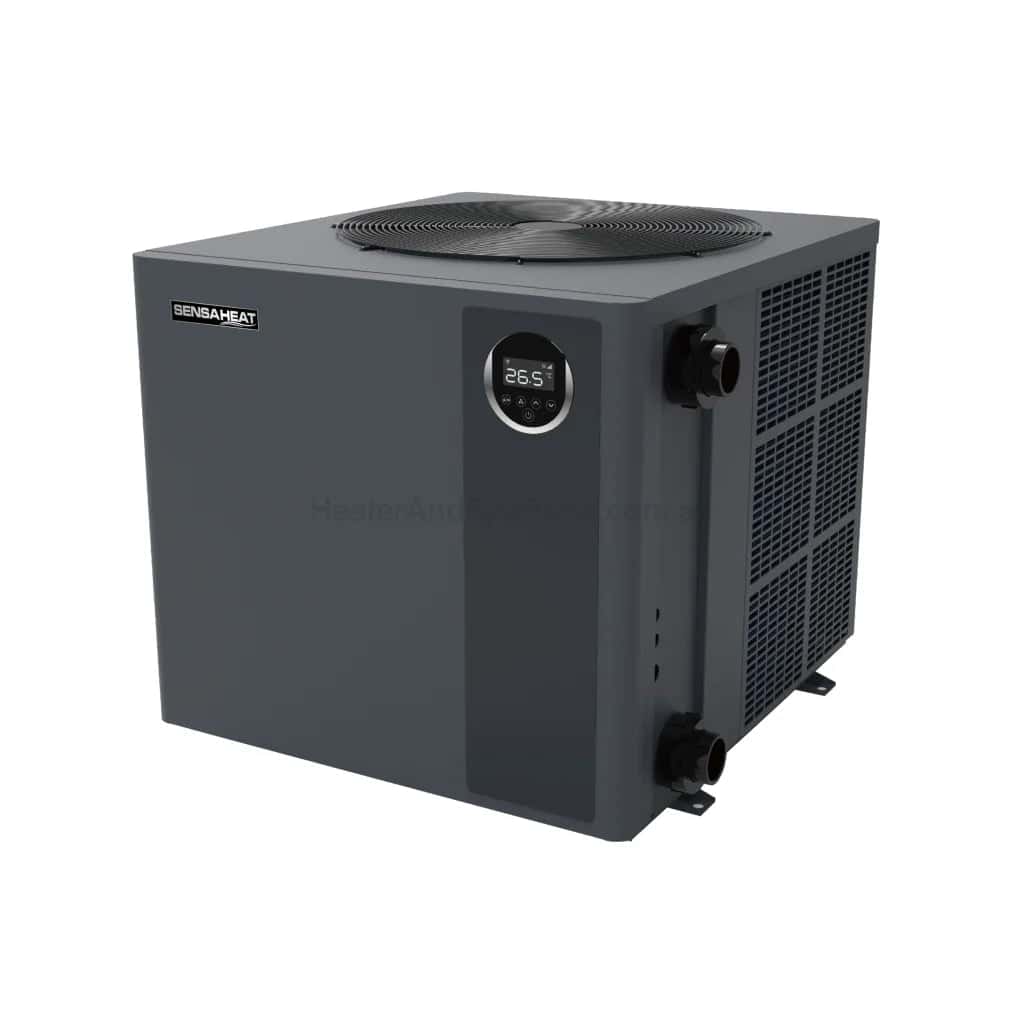Pool Gas Heater Installation Tips
Responsibilities
Always be aware of your responsibilities towards “Pool Safety Fencing Rules & Regulations” in your selected state. It is the pool owners responsibility to ensure compliance.
Pool Heater Warranty
If you have a heater failure under warranty the manufacturer will investigate the claim by sending a service technician to inspect the unit. They will have instructions to document the installation with pictures and in most cases, they will open the heater to document and inspect the condition of the internals.
What they are looking for is an indication that the failure was a result of installation factors beyond their control. In many cases they will find it. When chemical damage is detected, it will be evident on the internal metal components of the heater. In some cases, damage from improper winterizing will be detected and again is very evident to a skilled technician inspecting the unit.
From the perspective of a pool owner the diagnosis of installation or maintenance problems might seem arbitrary. The reality is that in most cases it is very easy to determine a manufacturer defect from a failure because of installation error or improper water chemistry.
Water Chemistry
If you maintain the sanitiser levels in your pool too high, or you fail to maintain the pH of the pool water within the ideal range of 7.2 – 7.8, then the heater internals can corrode at an advanced rate. The development of scale, or the presence of adverse pH conditions, or both, can cause the metal inside of the heater to fail early. If advanced corrosion is detected inside the heater, then the assumption is made that the water in the pool has not been maintained properly. Unless you can prove to the manufacturer (via weekly water lab report history) that your water has never been outside of ideal ranges then it is assumed that poor water chemistry is responsible for the early corrosion and failure of the heater. Most specifically high chlorine levels combined with low pH can be extremely damaging to pool heaters and even a single occasion where this happens can dramatically shorten the life of your heater.
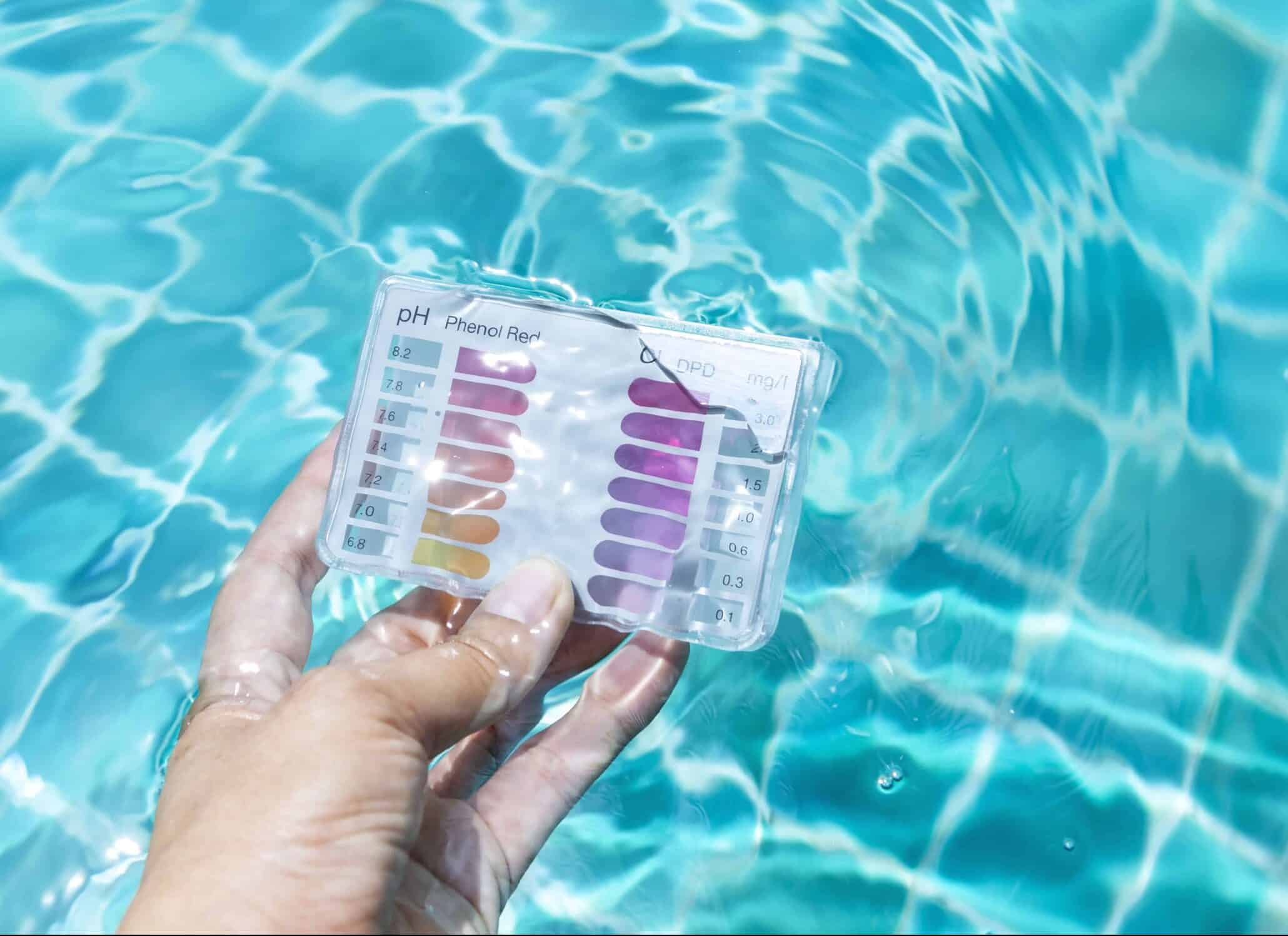
Salt Water Pool Heaters
The most common cause for denied pool heater warranty claims comes because of saltwater chlorine generators (and also chlorine erosion feeders). It is very common for saltwater chlorine systems to be adapted into existing swimming pool installations. In many cases the salt system is installed without consideration as to how this might affect other components of the pool – most specifically the heater.
When you add chlorine to a swimming pool with any form of automated feeder you must ensure that your heater is protected from this. Chlorine is harmful to the pool equipment which is why the only place that you add chlorine to the pool is right before the water is returned to the main body of water. You would never install a chlorine erosion feeder or saltwater cell before the pump, filter or heater. The reason for this is it is widely known that the chlorine will damage the equipment. This is the same reason that you should never add chlorine pucks to the skimmer basket or pump strainer basket in your pool. You do not want to send concentrated chlorine through the pool equipment.
The problem that exists with salt water is that it has become very popular in recent years, and many have been installed incorrectly by under-experienced installers or pool owners. In a pool system the chlorine that is added can travel backwards through the plumbing lines. Every time that you shut your pump off the chlorine generator still makes chlorine for a few seconds. This is enough to create a concentrated chlorine level within the pipes which are now sitting stagnant. Through diffusion in the pipes the concentrated chlorine can accumulate near to the heater outlet port. When you have a failure from chlorine travelling backwards through the plumbing system to the heater then you will have an accumulation of corrosion on the outlet side of the header, more so than on the inlet. When detected this is a clear indication that chlorine has damaged the outlet header and is leaking back from a chlorine injection system downstream from the heater.
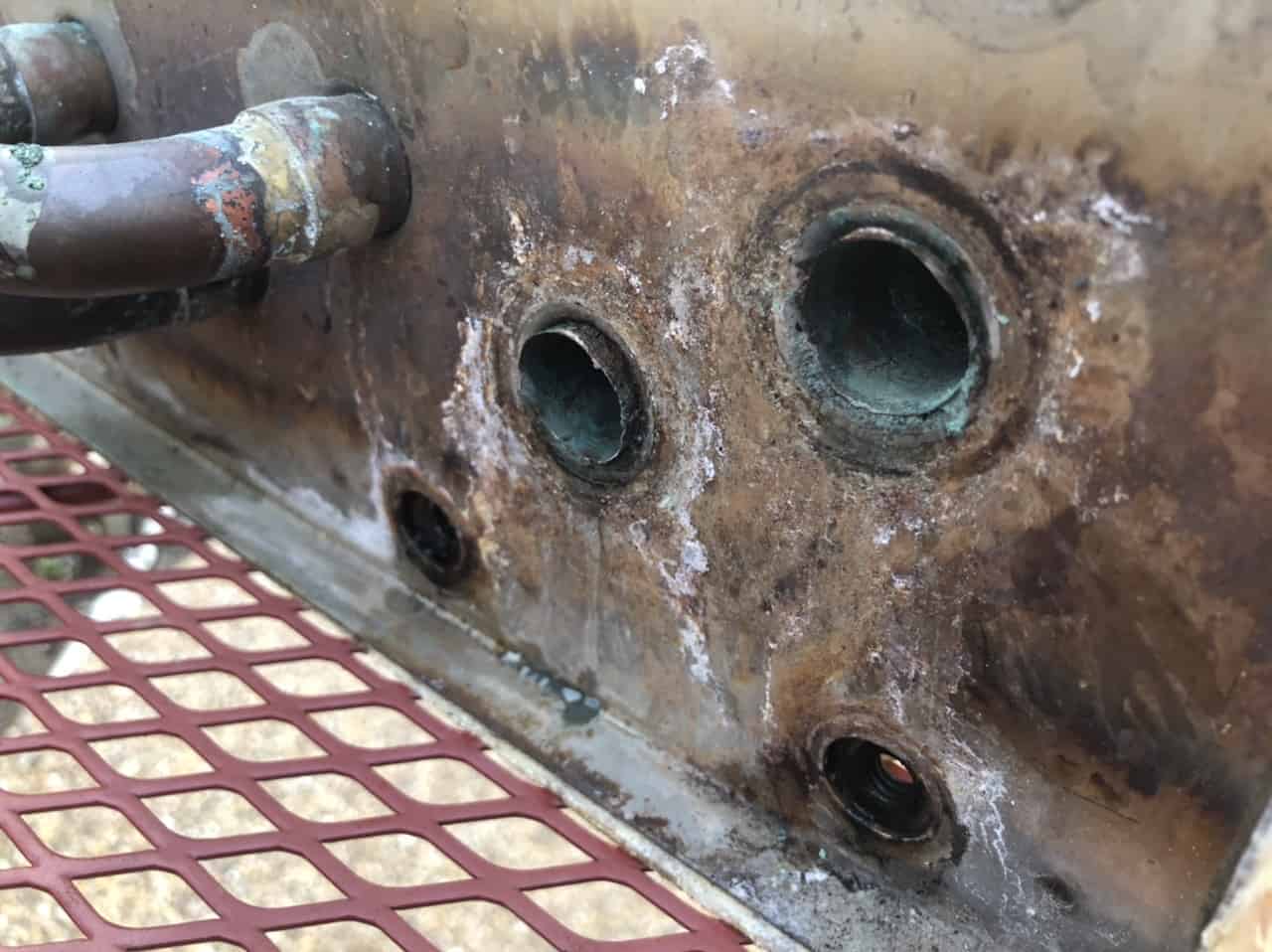
Incorrect Heater Installation
If your heater is not installed properly then it will likely be denied for a warranty claim. When a service technician inspects a failed heater they will be looking for adequate ventilation, correct gas line sizing, signs of physical damage as well as how the heater is plumbed into the pool system. Any errors found with these would be easy to detect and would also result in most failure claims being denied. While undersized venting, undersized gas lines and other errors of installation can happen they are rare compared to the most common cause for heater failure from incorrect installation – salt water!
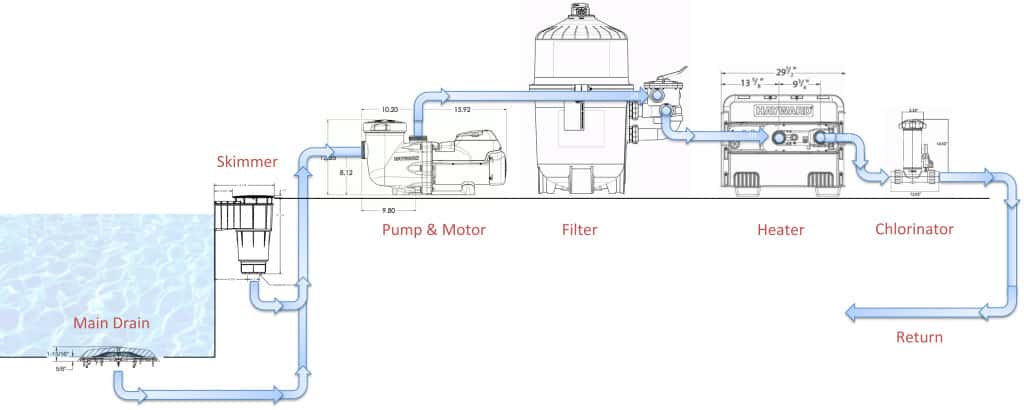
How to Install a Pool Heater
Now that you understand the importance of chlorine in relation to your pool heater installation you can consider how to install a pool heater correctly. Sizing of the gas line supply for the heater and the size and orientation of the venting ducts are supplied in the installation instructions for every heater. When it comes to the plumbing the most important thing you need to make sure is that you have a check valve in between your heater and any form of chlorine injection.
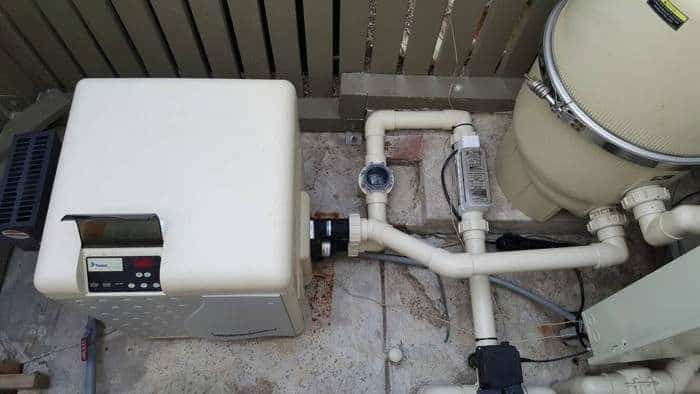
Heater Bonding
Another common cause of corrosion related heater failures is the development of corrosion due to a galvanic couple using the heater as an anode. This results in premature corrosion and ultimately failure of the heater internals. If you want to learn more about the process of galvanic corrosion you can read this article on the effect of salt water on swimming pools which discusses in detail what galvanic corrosion is and how it is damaging to your pool (and pool equipment). From the perspective of installing a new pool heater what you need to know is that you need to bond the casing of your pool heater. This is a step that is often overlooked. The pool equipment is grounded through the power supply, and this is enough to satisfy most local codes for electrical safety. Just because your pool installation passed an electrical inspection does not mean that your heater is correctly installed. Bonding the pool heater (and the pump) will help to protect against galvanic corrosion by not allowing a potential difference to exist between the heater and the water (or between the heater and any other components of the pool). Without this additional bonding grid protection in place, it is possible for advanced corrosion to develop inside of your heater. If this happens you will not be covered under warranty in most cases. To avoid this, you must bond the heater but there are additional preventative steps that you can also take.
Whether you have a saltwater pool or not galvanic corrosion is still a concern for you. The reason for this is that chlorine itself is derived from salt and even if you do not have a saltwater pool, you still have salt levels of a few hundred parts per million at minimum. This means that you are at less risk for galvanic corrosion than a saltwater pool however you still need to protect your equipment from potentially experiencing advanced decay. All swimming pools, but most especially pools with gas heaters (and electric heat pumps), should have a sacrificial anode installed. By providing an anode to be sacrificed this prevents your heater from potentially being an anode in a galvanic couple. If you replace the zinc anode every three years, or whenever the zinc deteriorates by half, whichever comes first, then you should be reasonably assured that your equipment is protected.
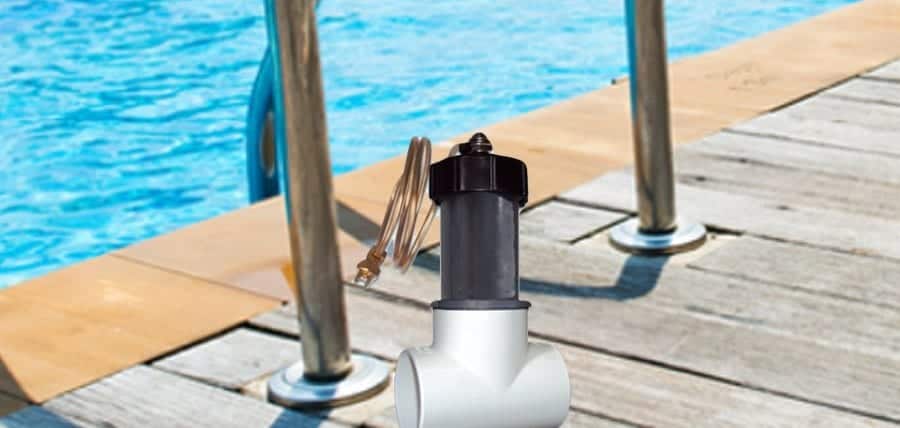
Pool Heater Efficiency
The quality of your heater installation will ultimately determine how efficiently your heater operates. If you think of a pool heater like an internal combustion engine in a car it can help to explain how a heater can operate efficiently (or inefficiently). An internal combustion engine requires four parameters in order to operate which are intake, combustion, ignition and exhaust. If any of these four factors is not operating correctly then the engine will cease to operate (or begin to operate inefficiently). In the same way that a car engine requires regular maintenance in order to work properly, so does a pool heater need maintenance in order to continue to operate with factory efficiency. If you limit the intake of air, the fuel / air ratio, the ignition system or the venting of your heater then these will cause an adverse reaction to your heater.
Spider webs in pool heaters – Spiders like the smell from natural gas and propane and seek out areas like pool heaters to build their homes. The webs in the burner orifices can obstruct the flow of fuel through the nozzle and throw off the air to fuel ratio that the heater needs to burn cleanly and efficiently.
Leaves in pool heaters – Accumulation of leaves or other debris inside of pool heaters is very common and this contributes to poor heater operating efficiency. Additionally the accumulation of leaves on top of the heater or burner tray is a serious fire hazard.
When the fuel to air ratio for your pool heater changes from the factory specifications your heater begins to operate less efficiently. There is an optimal ratio of fuel to air for a clean burn and when you change these values the heater begins to develop soot. The soot itself can also contribute to a further decrease in burning efficiency. In order to prevent this problem from happening you need to make sure that your heater has ample room around it for fresh air delivery as well as an appropriately sized ventilation system or vent stack. Regular cleaning (spring cleaning) of the heater to vacuum out spider webs, leaves, rodent nests and other debris is highly recommended to help make sure the fuel to air ratio that your heater operates at remains near to the initial manufacturer specifications.
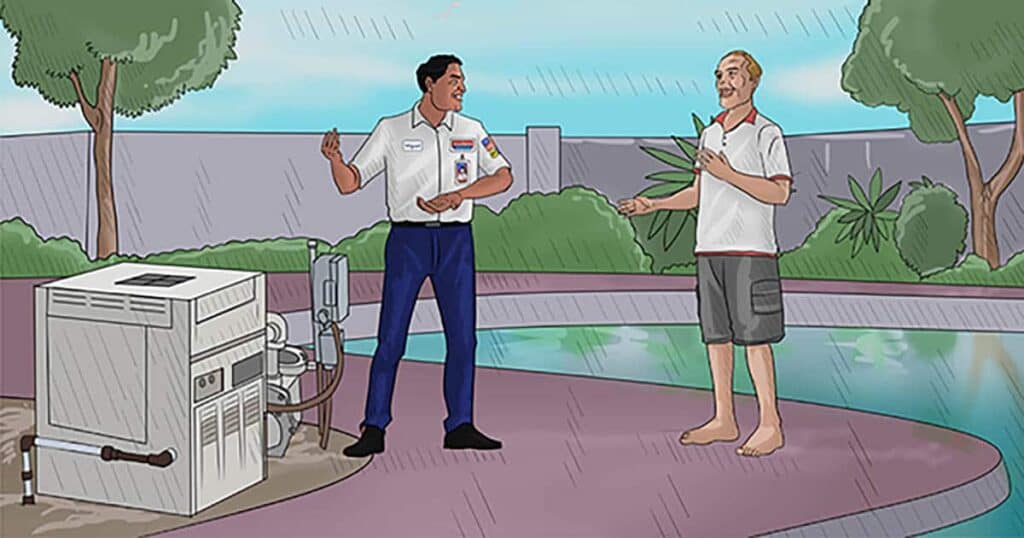
Pool Heater Gas Pipe Size
When you install a natural gas or propane pool heater you need to be sure that you have sufficient gas flow to the heater or it may not work. Some heaters will operate inefficiently while others will simply not turn on if they detect that there is not enough gas flow. In order to prevent this problem you will need to make sure that the gas pipe going to your heater is large enough as well as making sure the gas meter for your home is large enough to handle the draw from a large pool heater. Pool heaters are extremely large in terms of gas demand. Most pool owners do not realize how powerful a gas heater is (until they get their first gas bill from the utility company). Gas heaters for a pool range from 100k BTU up to 400k BTU or more. These pool heaters require as much fuel as 10 large family BBQ’s all running on full at the same time. Underestimating your gas needs for a pool heater is a mistake that you would only make once…and hopefully you can avoid it altogether.
Gas line sizing for pool heaters will depend on the length of the run from the main gas meter to the heater location, taking into consideration the number of fittings and turns the pipe makes. Before installing a new pool heater be sure to contact your gas utility company to discuss whether your current gas meter is able to accommodate the addition of the new, heavy draw, appliance.
If you have an existing gas pipe that is too small for your new pool heater then you may be able to contact your utility company and increase your service pressure. This would also require adding regulators to your other gas appliances since they will not be able to handle the increase in service pressure correctly. You may also need to have a new gas meter and regulator installed but this is often done at the expense of the utility company. The logic is that they are happy to sell you more gas and if you need some new hardware to accommodate your heavy gas usage they will often take care of this on behalf of the home owner.
The most important thing to take from this information is refer to the manufacturers manual on what is required regarding clearances plumbing regulations and qualified personal ie registered gas fitter plumber authorised to do this work.
Ask for a free quote and ask over the phone have you done gas heaters for pools before.
Add a sacrificial anode it will save you the heart ache later if you have electrolysis issues during the life of the heater and check the anode every year for replacement or wear.
Make sure the plumbing is correct and clearances are as per the manufacturers requirements.
Call or Email Shane for Help and Advice
Shane is the proud owner of Aussie Pool Heating and has been providing pool equipment and heating advice for over 20 years. Using only trusted brands and models of pool equipment, Shane remains focused on providing quality service and trusted advice to his customers.
With extensive knowledge and experience, Shane is at many times on the phone or on site helping with enquiries. If you have any pool issues or enquiries, call Shane on 0431 256 385 or email [email protected]


